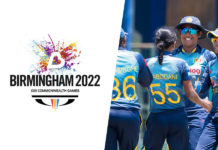He has helped install a few modern facilities, streamlined the process of obtaining medical support for athletes,
set up a screening process that will reduce costs of drug testing by more than 80 percent, and has pushed higher-ups to frame and implement laws to punish users of prohibited substances.
But when Professor Arjuna de Silva, the highest qualified individual to hold office at this once troubled institution leaves in November, will the facilities worth millions of rupees stagnate and is there a system in place to keep them functioning?
A newly bought treadmill, occupying a corner of the ground floor gymnasium, is among the latest facilities the Institute of Sports Medicine has acquired. The particular treadmill will soon be equipped with accessories (which are being air freighted), to function as a VO2 MAX treadmill, which will help ascertain the physical fitness of individuals. It is the first of its kind made available to sportsman in Sri Lanka.
According to de Silva, it is a basic need for elite athletes and a facility that should be made available, if the country is to reach international standards. There have been instances where such equipment bought using public funds had been left to gather dust. But de Silva is confident that with researchers of the Kotalawala Medical Faculty agreeing to use it and at least one research officer from the Institute of Sports Medicine conversant in operating it, the equipment will be made good use of.
Sri Lanka has been spending huge amounts on drug tests on athletes. But a drug screening process that has been set up after the necessary equipment were installed at the National Dangerous Drugs Control Board (NDDCB), the anti-doping authorities are able to conduct tests here at a lower cost. The samples collected at last month’s relay selection trial were being tested at the NDDCB.
According to de Silva, it was the first official test conducted here. The Institute of Sports Medicine has borne one third of the cost of nearly Rs. 15 million to make the facility a reality, while the Sri Lanka Police and the NDDCB has funded the balance.
Although the World Anti-Doping Agency does not recognize tests conducted here, de Silva believes the facility will help screen drugs at a lesser cost. According to him, a test conducted overseas costs the institution Rs. 25,000, but the same test can be done for Rs. 4,000 in Sri Lanka, now.
It will be used to test supplements as well and to determine whether the supplements ordered by athletes are safe and free from prohibited substances.
Apart from installing equipment, de Silva, together with the Sports Ministry, has pushed for new laws to punish those who violate the WADA code. As per de Silva, a draft bill approved by the Cabinet will soon be presented in parliament and when it becomes law, Sri Lanka will be the first country in the whole of Asia to have such laws to punish not only the sportsmen who uses banned substances, but their coaches as well.
However, despite the aura of positive achievements, there hangs a big question of whether the facilities worth millions of rupees and the newly introduced systems to provide nutritional supplements to athletes will be made use of in the manner it should be, without a dynamic individual at the helm.
Even with de Silva at the helm, top athletes sometimes have to directly contact him to obtain their supplements due to officialdom still prevailing, around two years since he assumed office.
Even athletes of the calibre of Sachith Maduranga, the country’s men’s javelin record holder and Asian Championship silver medalist find it difficult to obtain a sachet of ‘Jeevani’ and nutritional supplements from the Sports Medical Unit without reaching out to de Silva. “I came on Friday, then I had to come today (Monday) again. Now I am waiting to meet the Professor to get things done,” says Maduranga, as he waits his turn to meet de Silva.
While citing it as a one off incident, de Silva insists on the importance of looking at the broader picture. He has introduced a diary for athletes, where the training schedules are listed and the medical assistance taken are noted down.
The demerger of the Sri Lanka Anti-Doping Authority from the Sports Medical Unit was one of the earliest pledges given by de Silva after he was installed under the auspicious of the Sports Minister.
Both these institutions are still functioning together. But he is confident that the demerger will come into effect before his tenure officially ends in November.
There have been many other suggestions and recommendations by the professor, including DNA tests to identify future prospects. There is at least one hospital in town which has the facility to conduct the test. But the authorities are yet to conduct a single test. A suggestion for the Sri Lanka cricket team to undergo training with the Special Task Force for the much needed mental preparations after the team failed at several ICC cricket finals, has largely fallen on deaf ears.
During his two year stay, he has tried to introduce new things, including latest technology, but there seems to be a lack of a proper system and coordination between various sports institutions.
Probably overhauling an institution that had been stagnating for a lengthy period, required more time. And that will be a huge task for his successor.












